MercoPress. South Atlantic News Agency
Stories for November 23rd 2015
-
Monday, November 23rd 2015 - 10:42 UTC
Unfair to claim China sparked a 'currency war', argues India's central bank
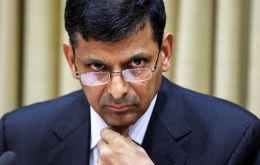
”It’s unfair to pin the blame on the August 11 Yuan devaluation because currencies were already declining due to the “unconventional monetary policies” of some nations, Raghuram Rajan was cited as saying in an interview with the SCMP.
-
Monday, November 23rd 2015 - 09:39 UTC
China's Yuan to be included in IMF's SDR basket of currencies
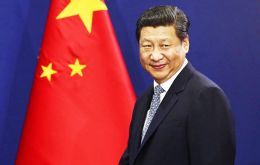
The inclusion of the Chinese currency in the International Monetary Fund's special drawing rights (SDR) basket is long awaited, long overdue and, finally, all but a foregone conclusion.
-
Monday, November 23rd 2015 - 08:46 UTC
China cracks on 'underground banks' to combat corruption and capital outflows
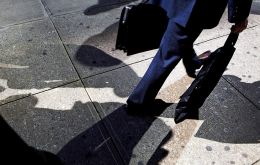
China said it cracked the nation’s biggest “underground bank,” which handled 410 billion Yuan (USD64 billion) of illegal foreign-exchange transactions, as the authorities try to combat corruption and rein in capital outflows that have hit records this year.
-
Monday, November 23rd 2015 - 08:42 UTC
Brazil job losses accelerated during October; 1.4 million in twelve months

Job losses in Brazil accelerated in October to the fastest pace so far this year as the country's political and economic crisis continues to worsen. Brazil's economy lost a net 169,131 payroll jobs in October, the Labor Ministry reported, up from 95,602 layoffs in September.
-
Monday, November 23rd 2015 - 08:31 UTC
Most of FIFA's 209 member associations secretive about their finances says TI

A new report from Transparency International says most of FIFA’s 209 member associations publish little or no information about how they spend millions of dollars from world football’s governing body. Highlighting the potential for corruption, the study into the governance structures of the federations questions what the FAs do with the more than $1m they each received from FIFA in 2014.
-
Monday, November 23rd 2015 - 08:16 UTC
Worst effects of European recession risk becoming permanent

The worst effects of the European recession risk becoming permanent in places, according to a left-leaning think tank. The IPPR's latest report pointed to the high level of unemployment and underemployment across Europe and said the chances of these becoming entrenched is “deeply alarming”. It said there was 10% unemployment and a 5% underemployment rate in Europe.
-
Monday, November 23rd 2015 - 07:58 UTC
Falklands' welcome message to Macri: “be smart, work with us, not against”

Falkland Islanders also participated in Sunday's elections in Argentina by sending congratulation messages to president-elect Mauricio Macri while celebrating the fact that president Cristina Fernandez time comes to an end.
-
Monday, November 23rd 2015 - 07:40 UTC
“Change is possible, thanks for believing”, president elect Macri´s first words
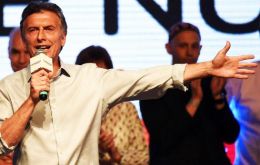
“Change is possible, thanks so much for having believed”, were the first words of Argentine president-elect Mauricio Macri when he appeared on stage at his packed headquarters in Buenos Aires, Sunday evening. Visibly emotional and euphoric, Macri said “it is a historic day for Argentina, a change of times. A change that will guide us to the future”.
-
Monday, November 23rd 2015 - 07:16 UTC
Argentine president-elect Macri takes office on 10 December; Tuesday meeting with Cristina Fernandez
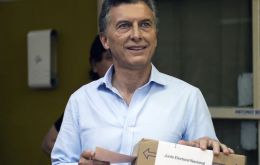
Mauricio Macri is Argentina's next president following the results of Sunday's runoff, the first in Argentine history. He will take office on 10 December replacing president Cristina Fernandez and twelve years of uninterrupted Kirchnerism. Although definitive results are yet to be announced by electoral officials, the primary vote counting indicated that Macri was winning with a four percentage points over incumbent Daniel Scioli.
